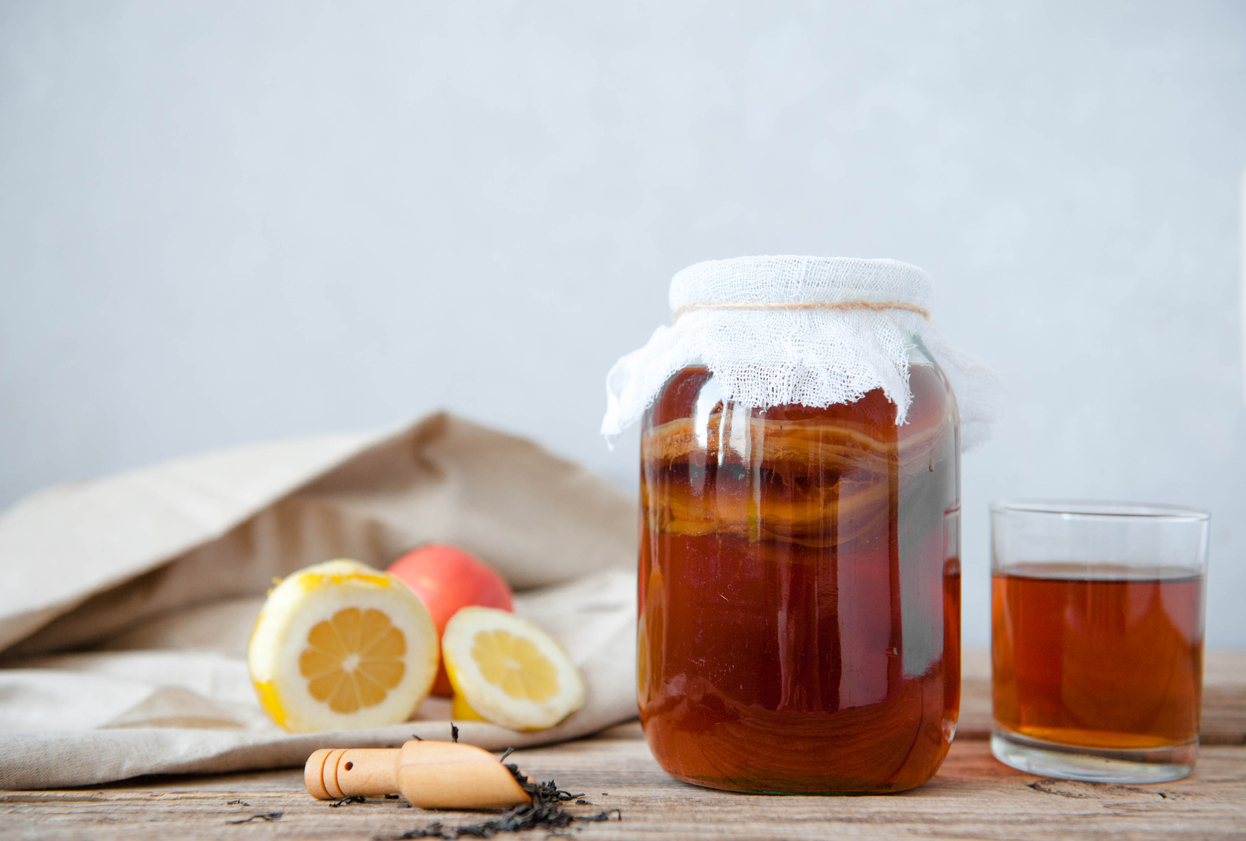Fermented foods
Discover fermented foods from around the world.
Kombucha
Kombucha is a fizzy, slightly tangy and sour, naturally fermented beverage made by combining brewed tea and sugar with a SCOBY – a Symbiotic Culture of Bacteria and Yeast.
Common recipes
- Basic black tea* kombucha
- Flavoured second ferment (e.g., adding fruits like mango, or flowers like hibiscus, etc…)
*You can also experiment with different types of teas, and an endless amount of experimentation can be discovered when adding flavours to the second fermentation!
Historical background
While there are many origin stories and myths competing to claim the debut of kombucha, it is widely believed to originate in Northeast China around 220 BCE.
How to make at home
Tools: Glass jar, cloth cover, pressure-safe (i.e., swing-top) bottles for second ferment
Basic steps:
- Brew tea and dissolve sugar (~100 grams of sugar per litre).
- Cool and add SCOBY + ~100 ml of already ready kombucha
- Cover with cloth and ferment for ~7–10 days.
- Bottle and refrigerate to halt fermentation process
- Optional: Add fruit, flowers, etc, directly to the bottles for a second-ferment with flavourings. Leave unrefrigerated for ~2-3 days.
Fermentation tips
- Maintain room temperature (~22–28°C). The warmer, the quicker the fermentation will occur.
- Days of fermentation depend on temperature and your taste preferences – you can taste the kombucha as it ferments to specify it to your liking.
Nutritional profiles
Kombucha contains natural compounds from tea, such as phenolics and organic acids, which are created during fermentation. These substances may act as prebiotics, meaning they help nourish the beneficial bacteria in your gut and support digestive health.
Evidence-based health benefits
Some early studies suggest potential effects on cholesterol, blood sugar regulation, and liver function (Marsh et al., 2014).
More recently, clinical trials suggest that drinking kombucha may help with digestion, especially by easing constipation and improving regularity. It might also have a small effect on the balance of good bacteria in your gut and mouth, which could be good for overall health (Fraiz et al., 2025).
Discover more fermented foods.
